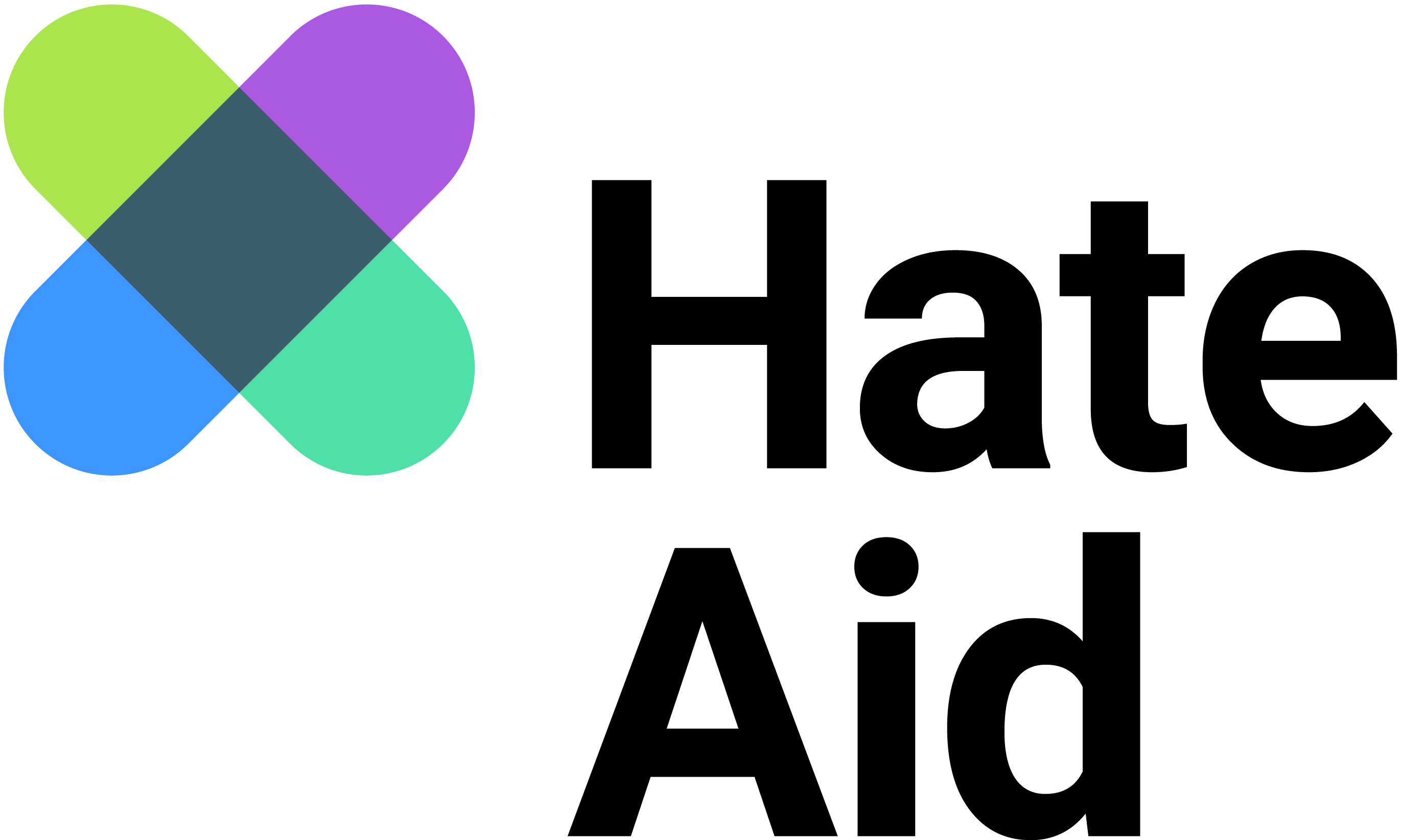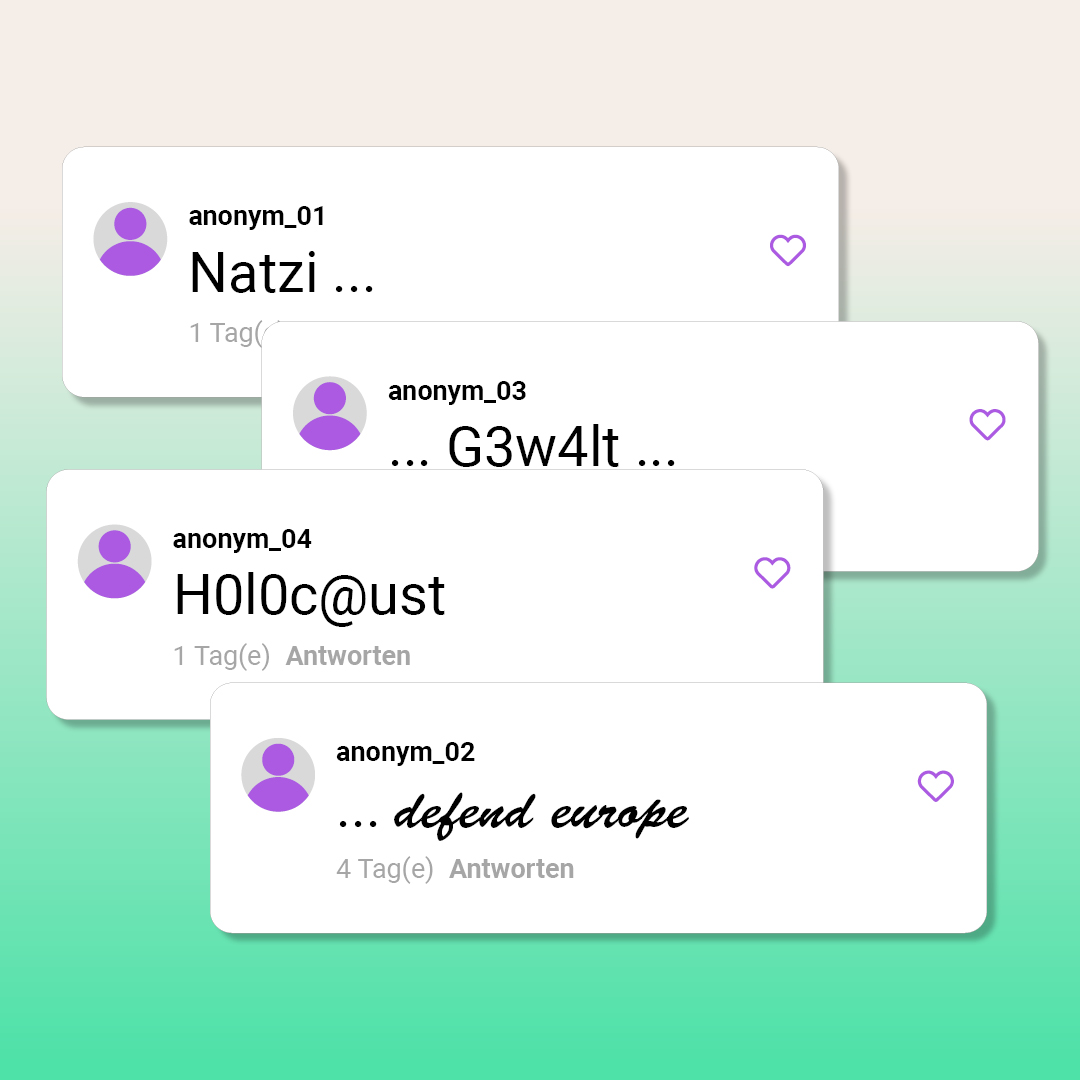Lawsuit against Twitter: HateAid and the European Union of Jewish Students submit landmark case
The case focuses on determining whether Twitter has a contractual obligation to its users, under its Terms of Service, to remove antisemitic Tweets which contain sedition, including trivialisation and denial of the Shoah. The verdict could set a precedent for numerous affected communities.
This week, HateAid and the European Union of Jewish Students (EUJS) have jointly filed a civil action against Twitter. The two organisations are criticising the platform’s insufficient moderation of content that includes sedition (§ 130 German Criminal Code). The subject of the lawsuit is six antisemitic and illegal comments that were not removed despite reporting these to the platform. In one case relating to Shoah denial, Twitter had even explicitly refused to remove the content. This practice contradicts the platform’s Rules and Policies which are part of the terms of service for users. There, the company states that it will not tolerate threats of violence and behaviour that incites hatred. This landmark case, which starts today, will provide clarification about whether users have a legal claim to enforce these Rules and Policies as part of their contract with social networks. This would give users the possibility to sue for the removal of inciting content in the future, even if they are not personally affected from violations of their rights. To date, users have been at the mercy of an arbitrary and untransparent practice of moderation.
For several years, we have been observing a massive spread of antisemitic statements on the internet. Particularly on social networks, taboos are broken on a regular basis: more than 77 years after the end of World War II, threats of violence against Jews, and trivialisation and open denial of the Shoah are happening on a daily basis. In 2021, a report by the Center for Countering Digital Hate showed that the removal of antisemitic statements that were reported to social media platforms was insufficient. The investigation revealed that 84 percent of posts containing antisemitic hate were not reviewed by the platforms. According to the survey, Twitter took action in only 11 per cent of the cases[1].
Avital Grinberg, who, in her capacity as President of EUJS, is filing the complaint:
“Twitter has betrayed our trust. By allowing hateful content to spread, the company fails to protect users, and Jews in particular. What starts online, does not end there. Twitter cultivates real hate and violence, and assuch, disregards our democratic values. For young people, engagement also means to commit and express themselves online. If Jews are forced out of the virtual space due to antisemitism and digital violence, Jewish life will become invisible in a place that is relevant to society. We will no longer tolerate this! Remembrance of the Shoah must not be merely expressed through emotional speeches, but also through clear positions, resolute action and protective laws. This lawsuit is the response of resilient Jews to the failure of Twitter and the rule of law.”
In its Rules and Policies, the American social media platform assures that it will not tolerate hatred and violence. The corresponding Hateful conduct policy states that Twitter is “committed to combating abuse motivated by hatred, prejudice or intolerance, particularly abuse that seeks to silence the voices of those that have been historically marginalised”. In addition, the Abusive behaviour policy states that Twitter prohibits content “that denies that mass murder or other mass casualty events took place”, including, among other
things, “events like the Holocaust”. When registering an account, users agree to these Rules and Policies – confident that the company guarantees adherence to these guidelines.
But the reality is different: While the Rules and Policies leave considerable scope for Twitter when it comes to the removal of content, for the users they mean mere, vague declarations of intent. After Elon Musk’s takeover of the platform, the company repeatedly hit the headlines with arbitrary decisions concerning the restoration of blocked accounts[2] and the dramatic reduction of staff in moderator teams[3]
Josephine Ballon, Head of Legal at HateAid:
“We’ve put the control over the public discourse on the internet into the hands of private companies and investors. Twitter assures it won’t tolerate violence on its platform. Users have to be able to rely on that. But in practice, we see the opposite happening: illegal content is at best removed in arbitrary and untransparent ways. This must finally change. Twitter owes us a communication platform where we can move freely and without fear of hatred and agitation.”
This landmark case will, for the first time, provide a legal clarification of whether social networks, despite the non-committal wording of their Terms of Service, have the obligation to implement their own rules in order to protect their users. Should the Berlin District Court support the argument put forward by HateAid and EUJS, it would greatly improve the protection of users. This applies, in particular, to cases of incitement to violence where users aren’t personally affected. To date there are no legal means to take action against non-deletion of content that contains sedition. The only option is to file a complaint with the Federal Office of Justice in Germany as the responsible supervisory authority. But even then, a fine could only be imposed if there was proof of a systematic failure. This has not happened since the Network Enforcement Act came into effect.
About European Union of Jewish Students (EUJS)
The European Union of Jewish Students (EUJS) is a pluralistic, inclusive and non-partisan umbrella organisation. We support Jewish student unions throughout Europe and represent its members in international institutions and organisations. Founded in 1978, we currently have 36 member unions, spanning from Russia to Scandinavia to the United Kingdom. EUJS is led by the president, executive director, and eight board members who are elected by EUJS member organisations at the EUJS General Assembly. The headquarters are located in Brussels, Belgium. EUJS aims for a vibrant and sustainable Jewish future in Europe, achieved by empowering Jewish youth in order to make a positive contribution to European society. Seeking to strengthen Jewish communities and European society through Jewish student activism and advocacy, EUJS connects peer-led, independent Jewish student unions throughout Europe and supports
them in fulfilling the aspirations of the Jewish people; developing Jewish religious, spiritual, cultural and social heritage, and ensuring continuity.
For more information about EUJS, please visit our website: https://eujs.org/
About HateAid gGmbH
The non-profit organisation HateAid was founded in 2018 and has its headquarters in Berlin. It advocates for human rights in the digital space and stands up against digital violence and its consequences at both social and political levels. HateAid provides support to people affected by online violence in the form of counselling and litigation financing.
Press contact HateAid presse@hateaid.org, Tel. +49 (0)30 252 088 02
[1] Center for Countering Digital Hate (2021): Failure to protect. How tech giants fail to act on user’s reports of antisemitism, URL: https://counterhate.com/research/failure-to-protect/
[2] https://www.washingtonpost.com/technology/2023/01/14/twitter-moderation-cutbacks-impact/
[3] https://www.rnd.de/medien/twitter-uebernahme-trump-wieder-da-kanye-west-gebannt-musks-verwirrender-kurs-bei-der-kontrolle-von-M6C6S2XWCBIM47SCPYJTL37NFI.html






